Our final destination was Santa Tereza Lodge, a.k.a. "The ocelot place". Before we could get there we had to drive back across most of the 122 bridges on the Transpantaneira, where we saw many, many more of these guys:
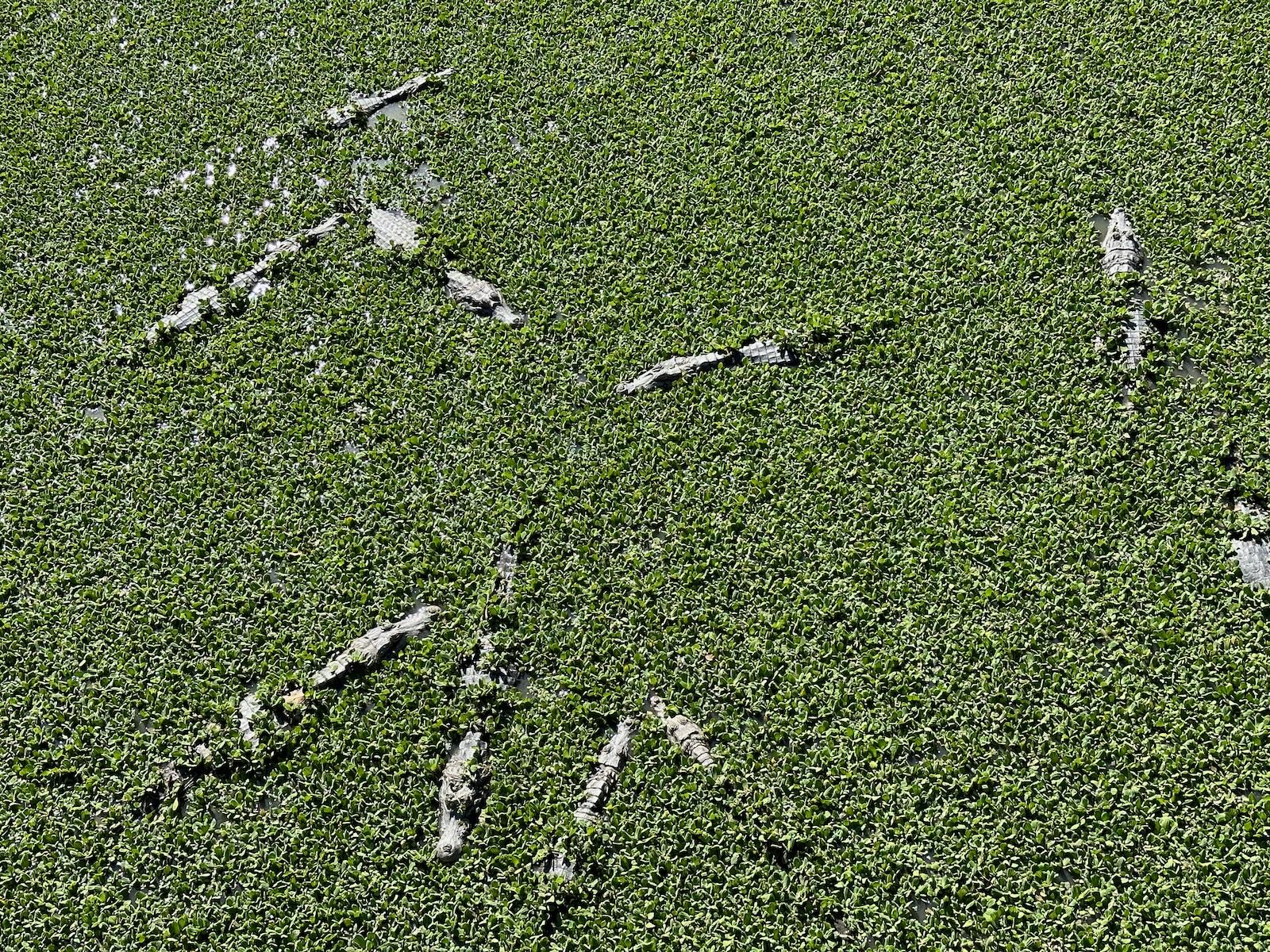
We stopped for a break at a lodge along the way, where we all took turns admiring Hyacinth Macaws and also petting Snow, a large and friendly dog that was visiting for the day.
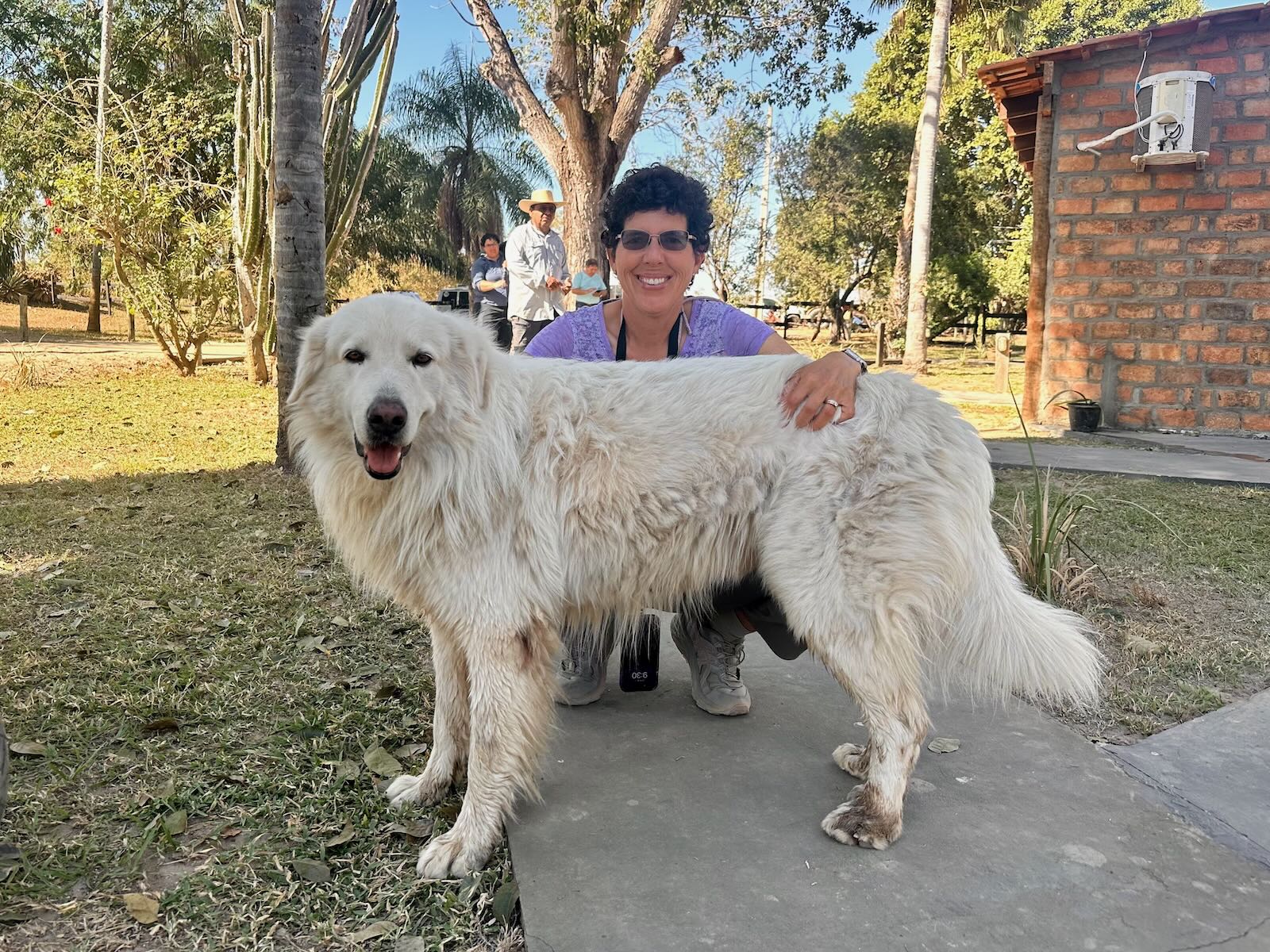
The first thing we noticed upon pulling up to Santa Tereza was the huge Jabiru nest containing three chicks and one or two parents (the adults took turns flying out to find more food for the young 'uns). We also noticed and quickly occupied the spindly observation tower that had been built to get good looks at these birds.
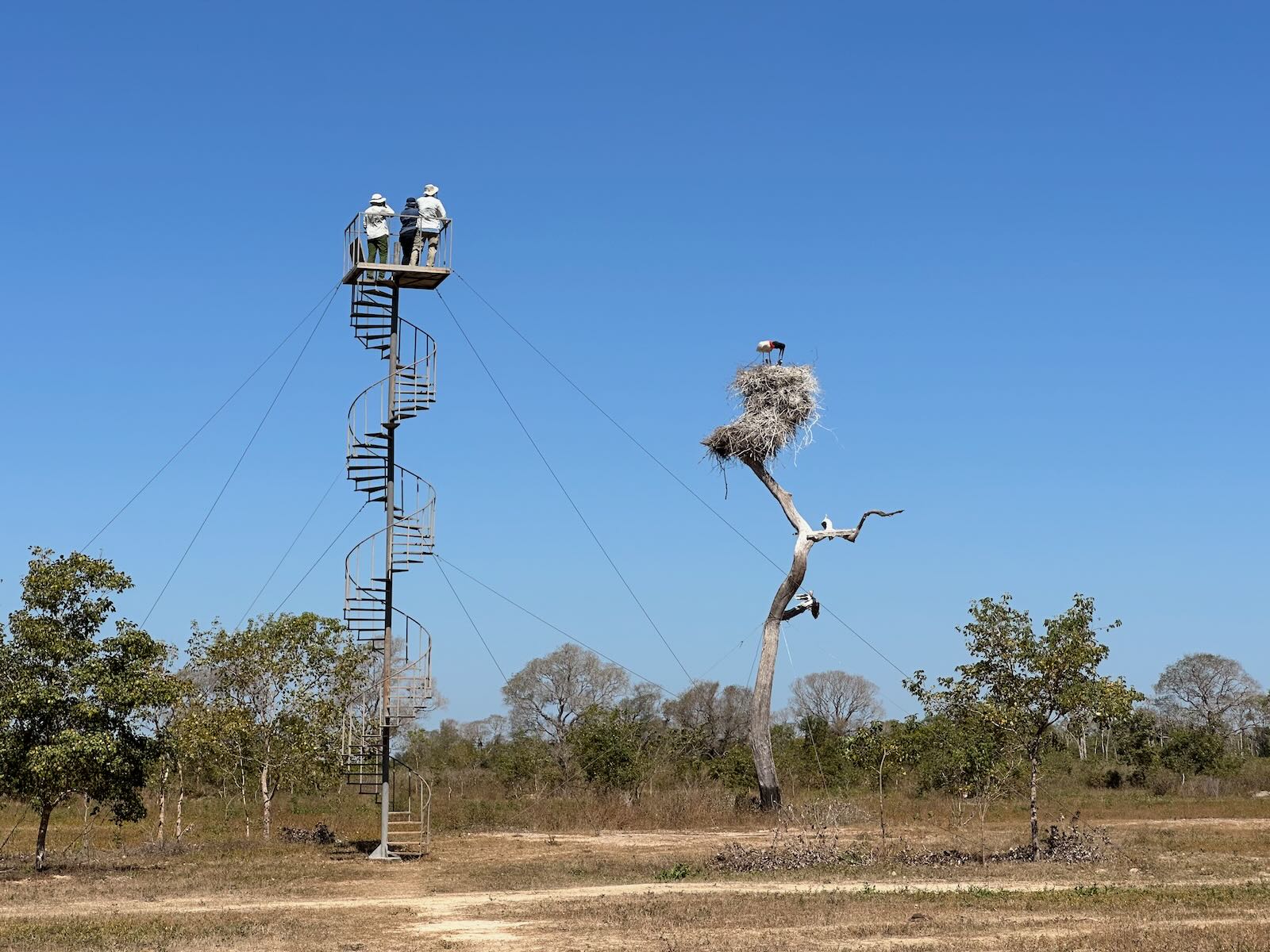
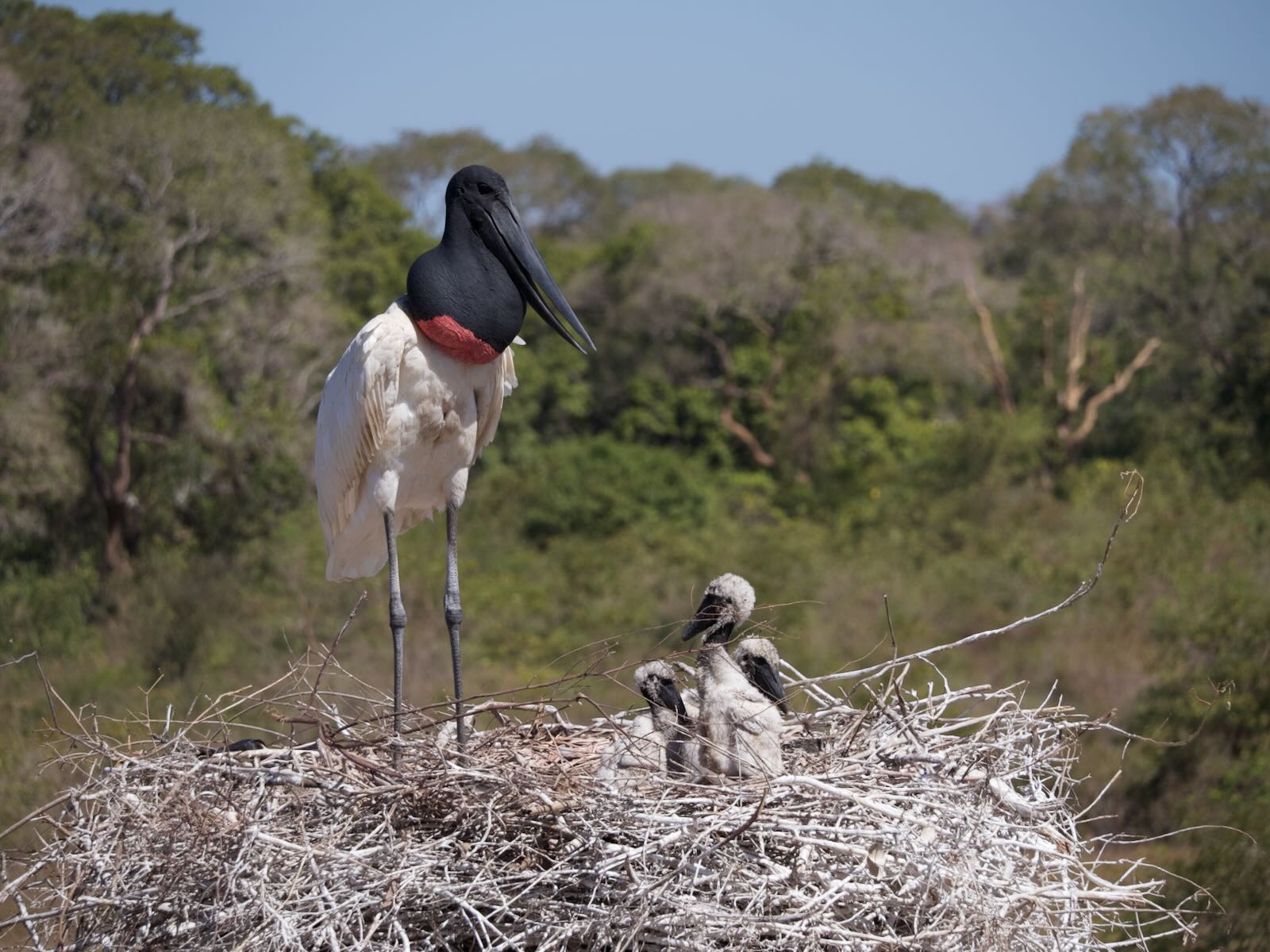
Speaking of large birds, our old friends the rheas wandered by from time to time.
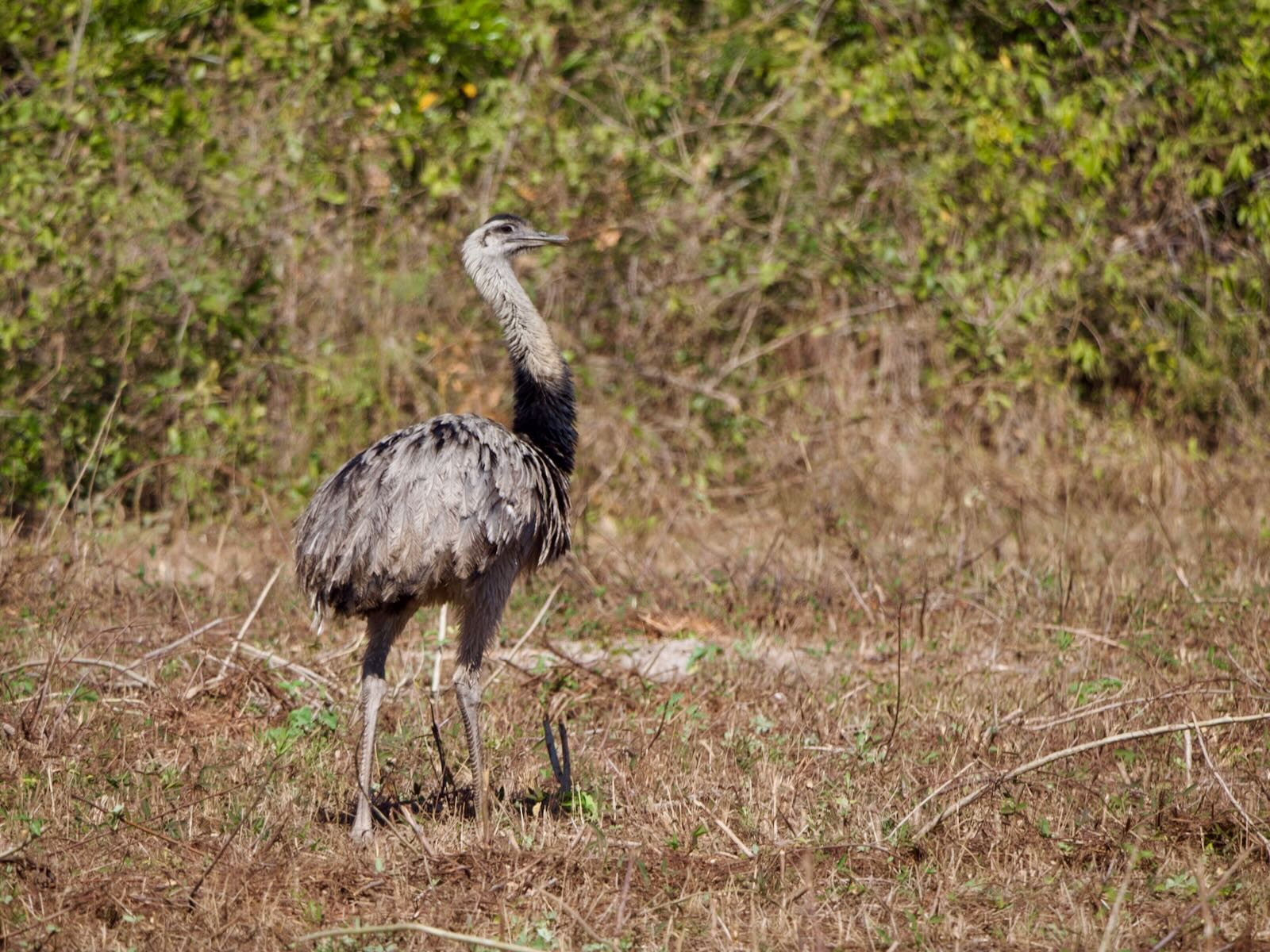
In a wetter season or perhaps year, we could have boarded a boat right by the lodge to look for wildlife in the nearest waterway. But the water levels were low, so instead we took a van to a spot about twenty minutes away and enjoyed our wildlife cruises from there. This is not Jaguar Land, but there are still jaguars around here. However, they are in much lower density and we were not expecting to see any, nor did we. But we saw many fine animals and much beautiful scenery on our peaceful boat rides.
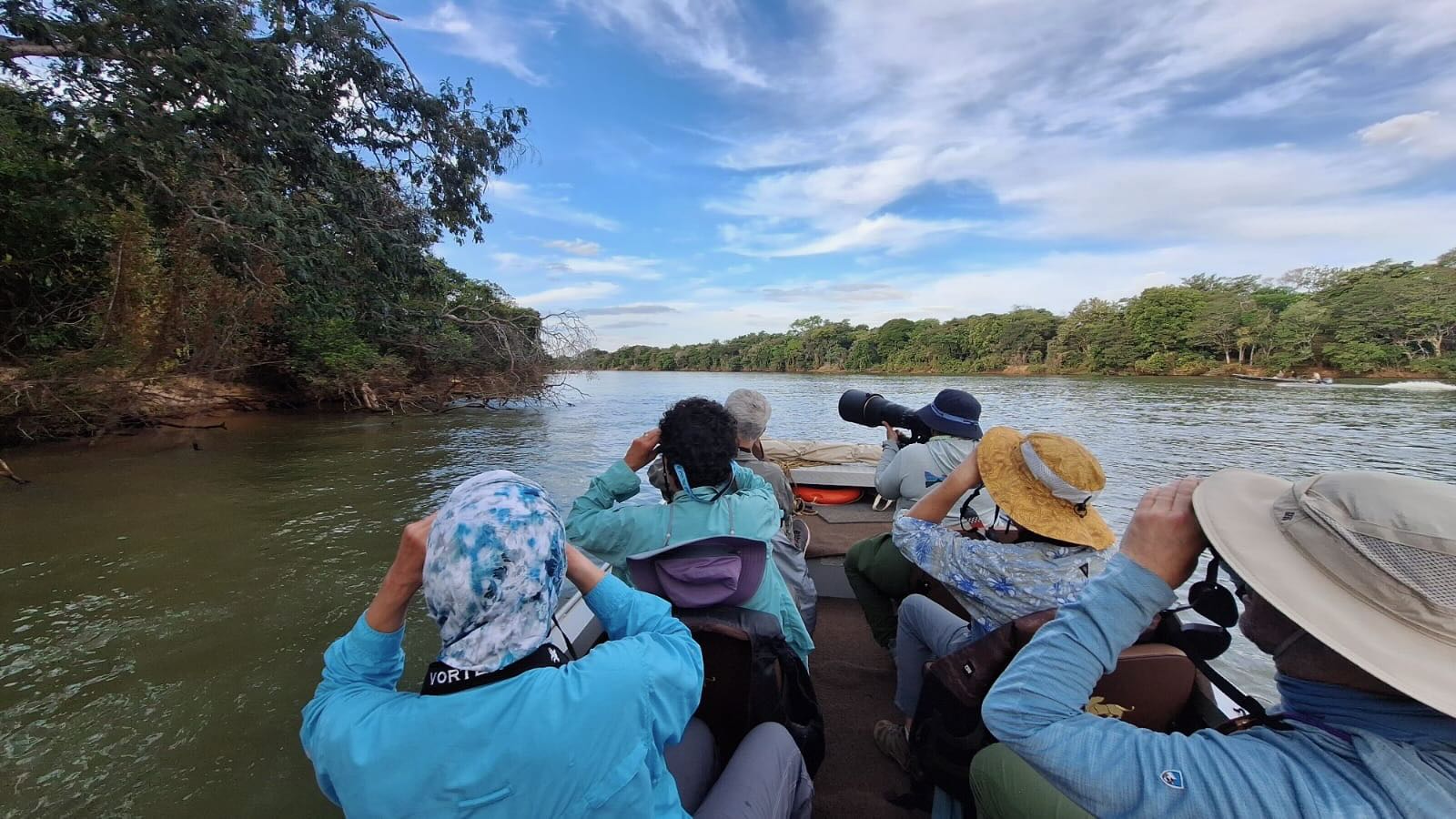
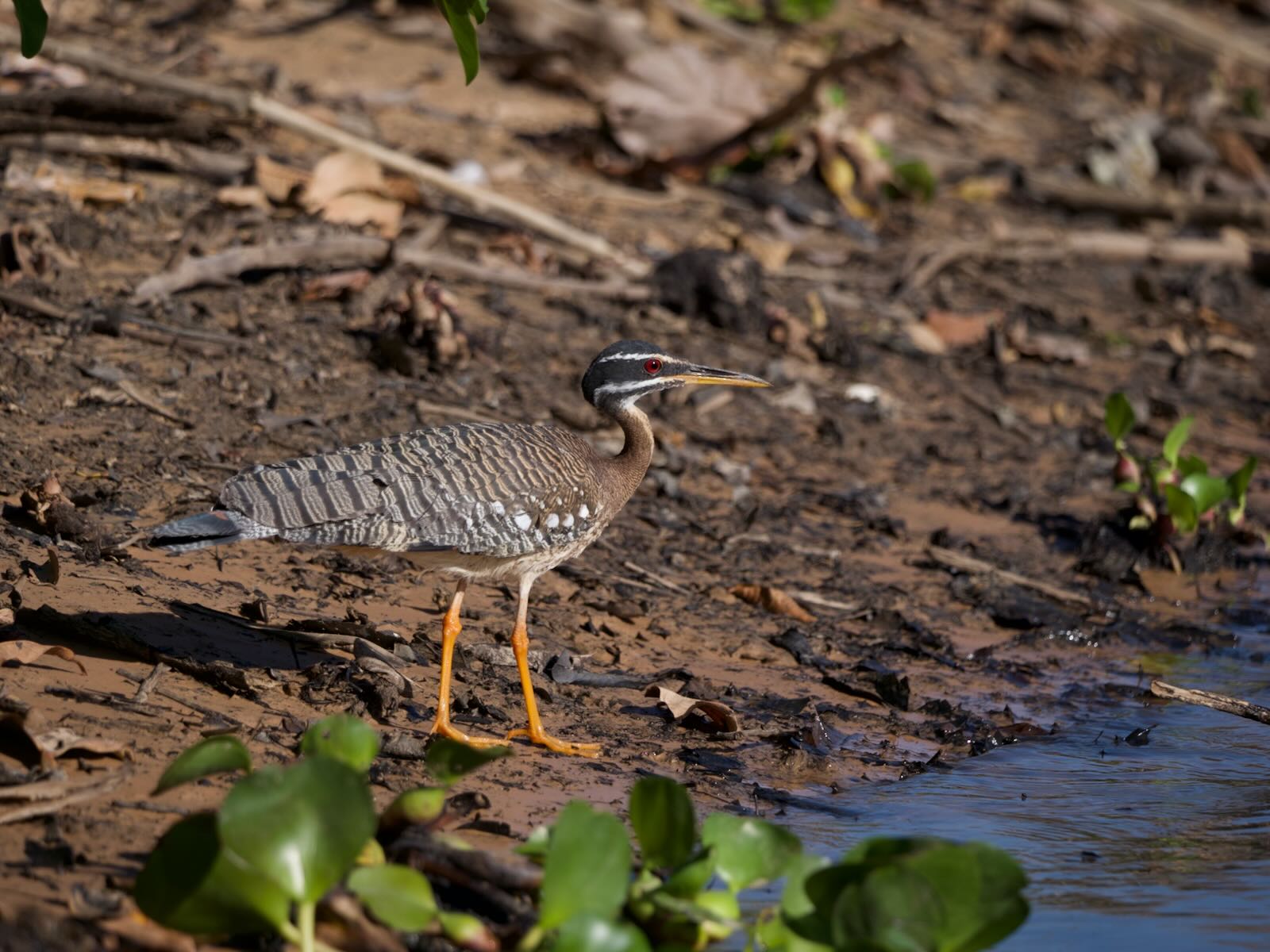
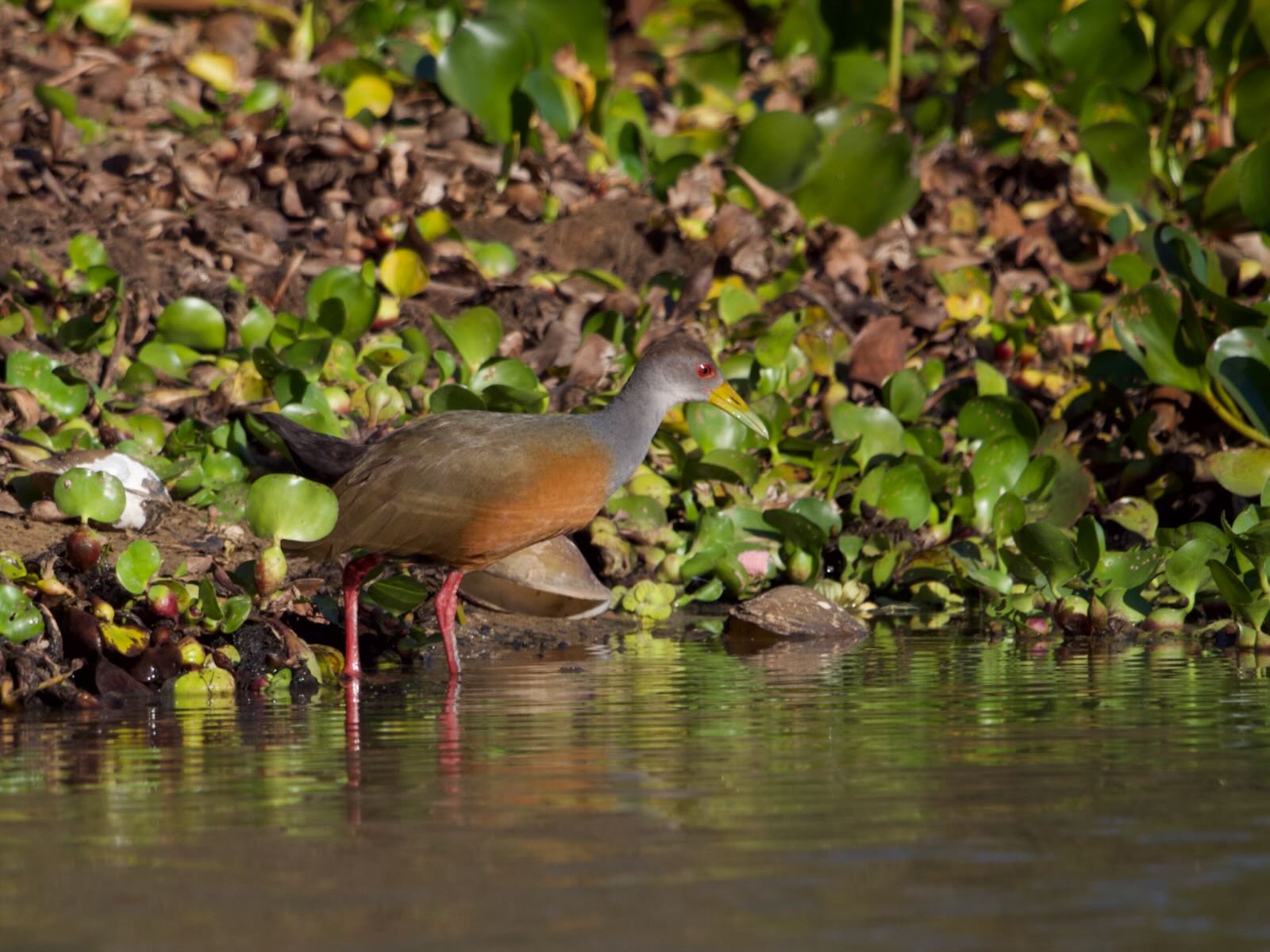
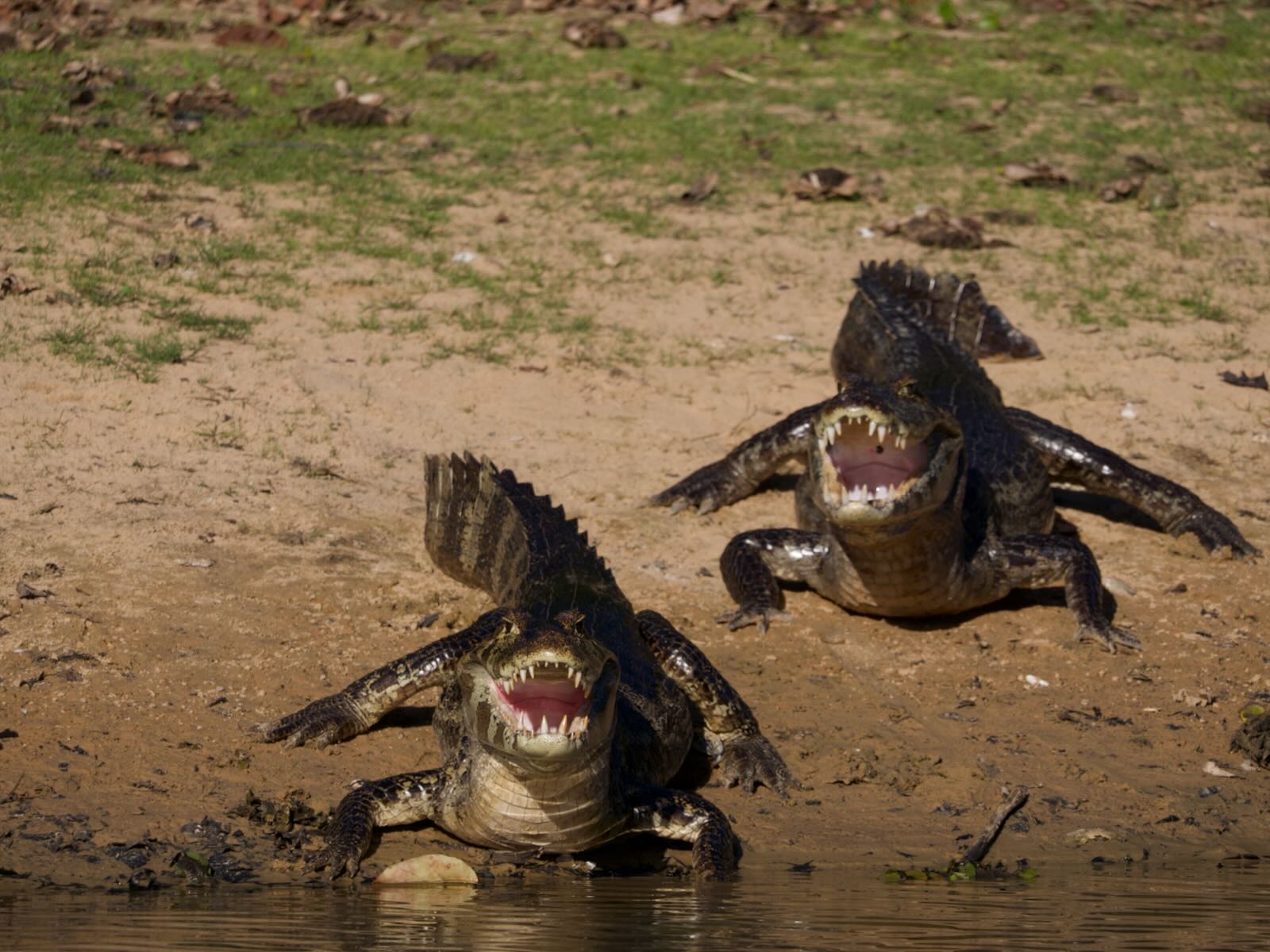
We knew there was a chance to see a wild ocelot at this reserve. After all, this itinerary was the "Jaguar and Ocelot Photography Safari". We expected this meant that we would hike around in the forest and hope to see an ocelot if we were very lucky. The truth was a little different. The company that owns the lodge had constructed a large hide looking out on a clearing with some well-placed bare branches. Each night, lodge guests would sit quietly in the hide as sunset approached. An employee would then place pieces of meat and fish at various photogenic spots along the bare branches. On most (all?) nights an ocelot would soon sneak out of the forest and onto the branches to enjoy the ocelot bait before slinking off into the forest again. Weak floodlights illuminated the area to allow for photos and video.
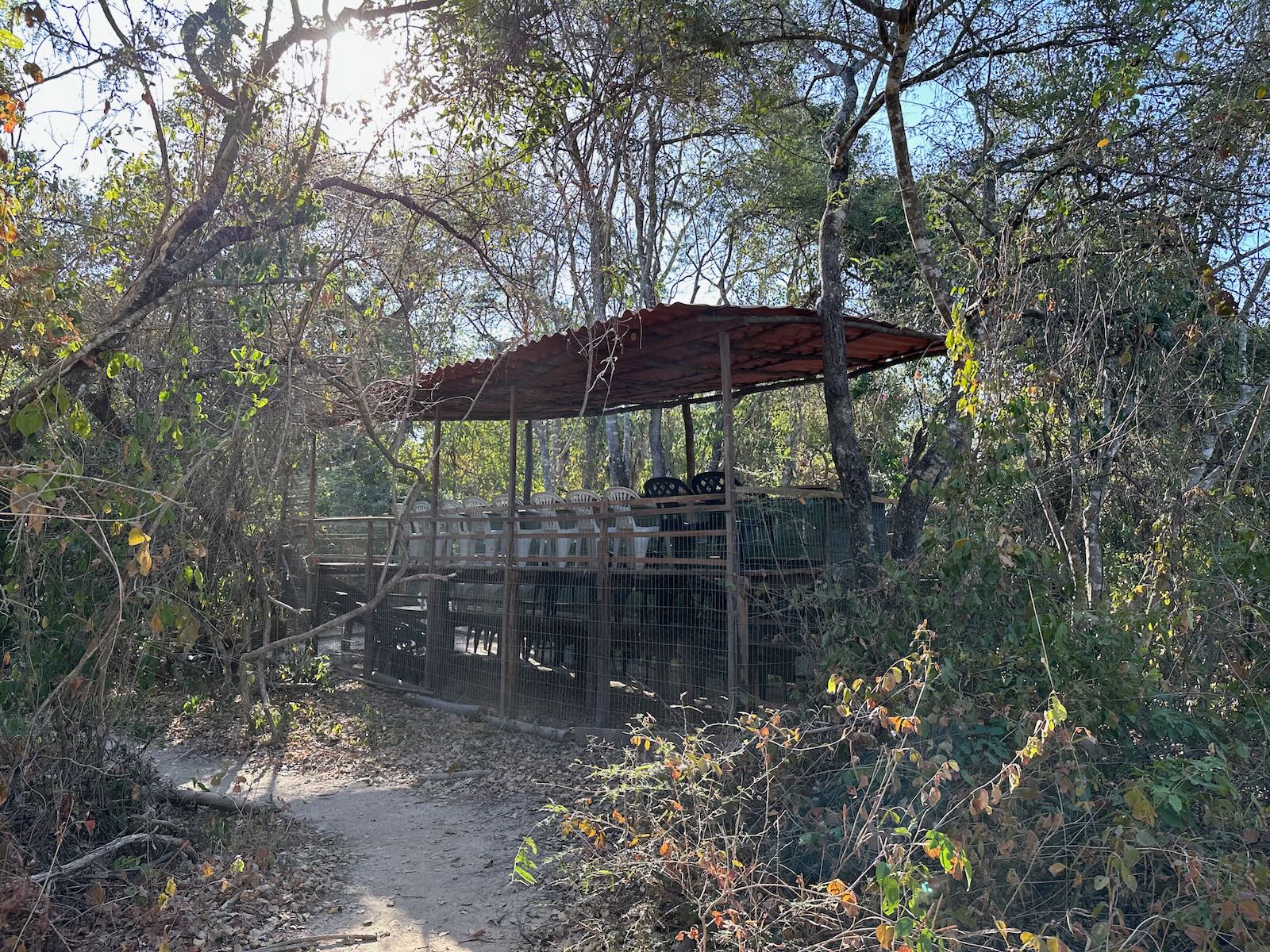
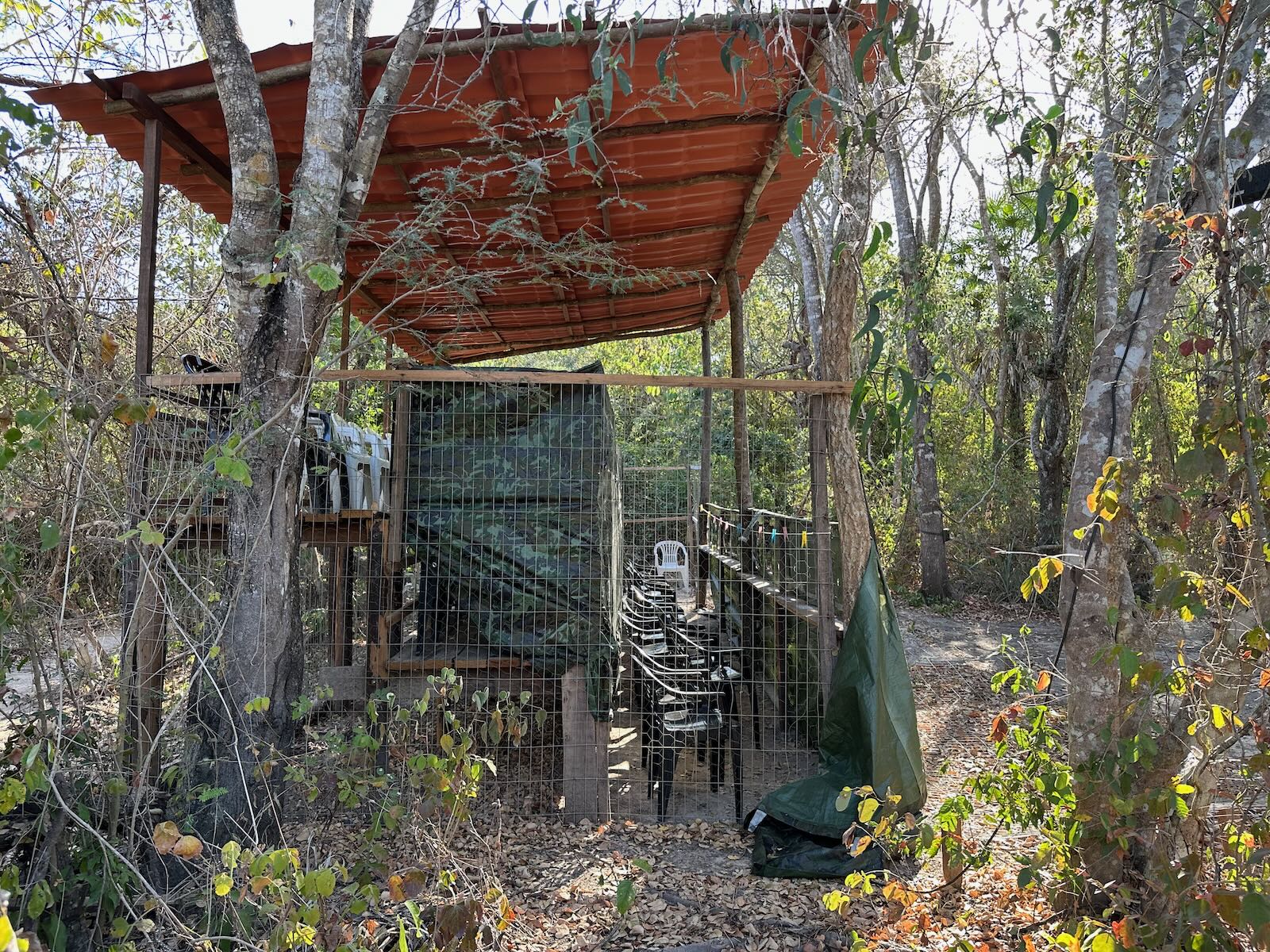
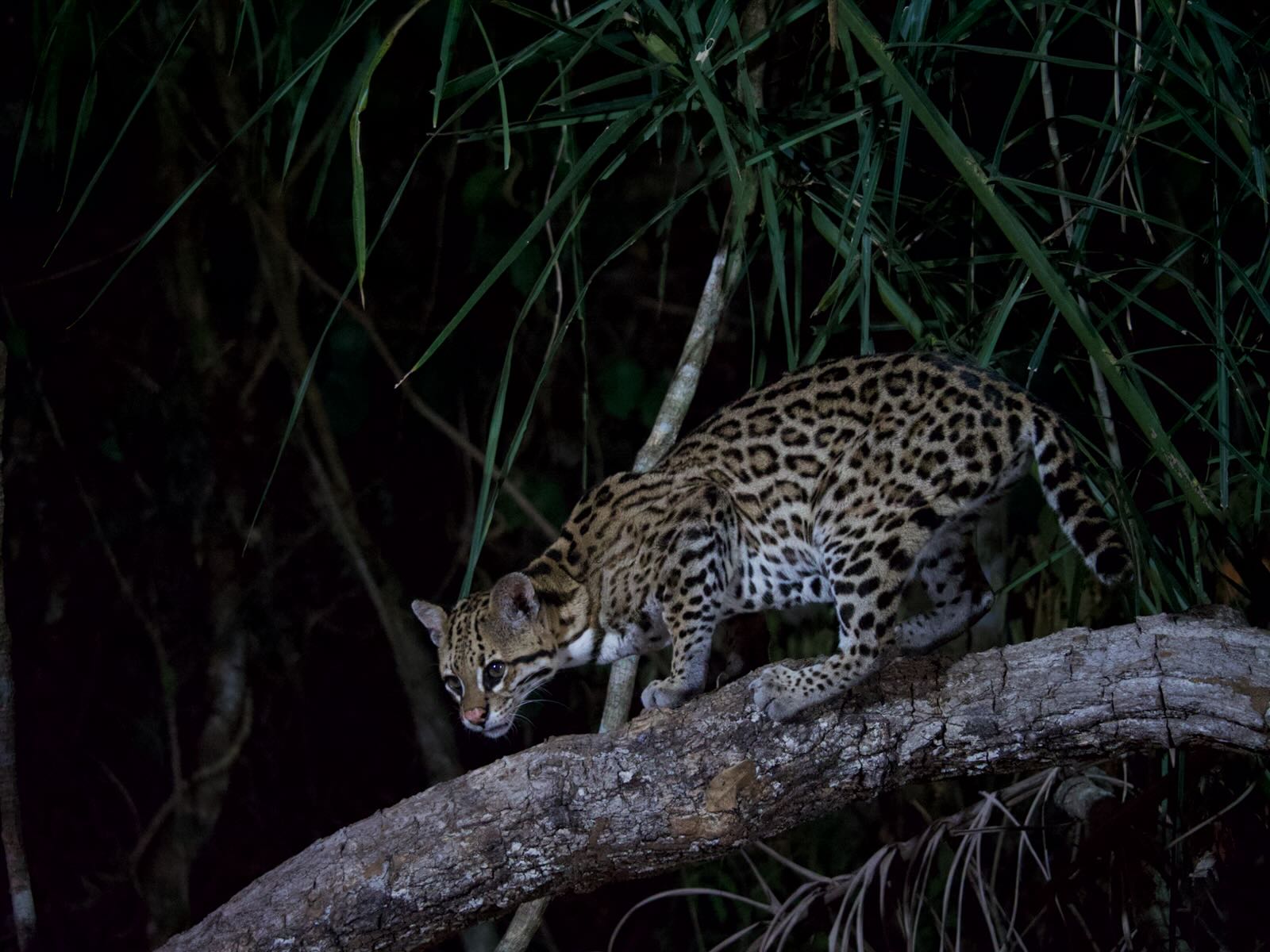
We had very mixed feelings about ocelot-viewing experience. On the one hand, the cat was amazing and beautiful and probably none of us will ever see another wild ocelot and almost certainly none of us will ever get another chance to photograph and film one from up close. On the other hand, we have heard all our lives the reasons not to feed wild animals: they will end up with an unnatural diet; they will become dependent on people and lose the ability to find their own food; they will lose their fear of people and thus be more likely to be killed by people intentionally or accidentally; etc.
We discussed these issues with Nathalie, who shared our concerns. But she also told us that the lodge's owner had helped support many conservation efforts in the Pantanal. We talked about how the opportunity to see a free-living ocelot probably brings in many comparatively wealthy tourists each year, and these tourists put money into the local economy that helps sustain the efforts to keep the Pantanal from being destroyed by development. So it's a morally tricky situation, and it left us all a little unsettled.
We settled ourselves down with a few rounds of Speed Uno, as we had done on most nights.
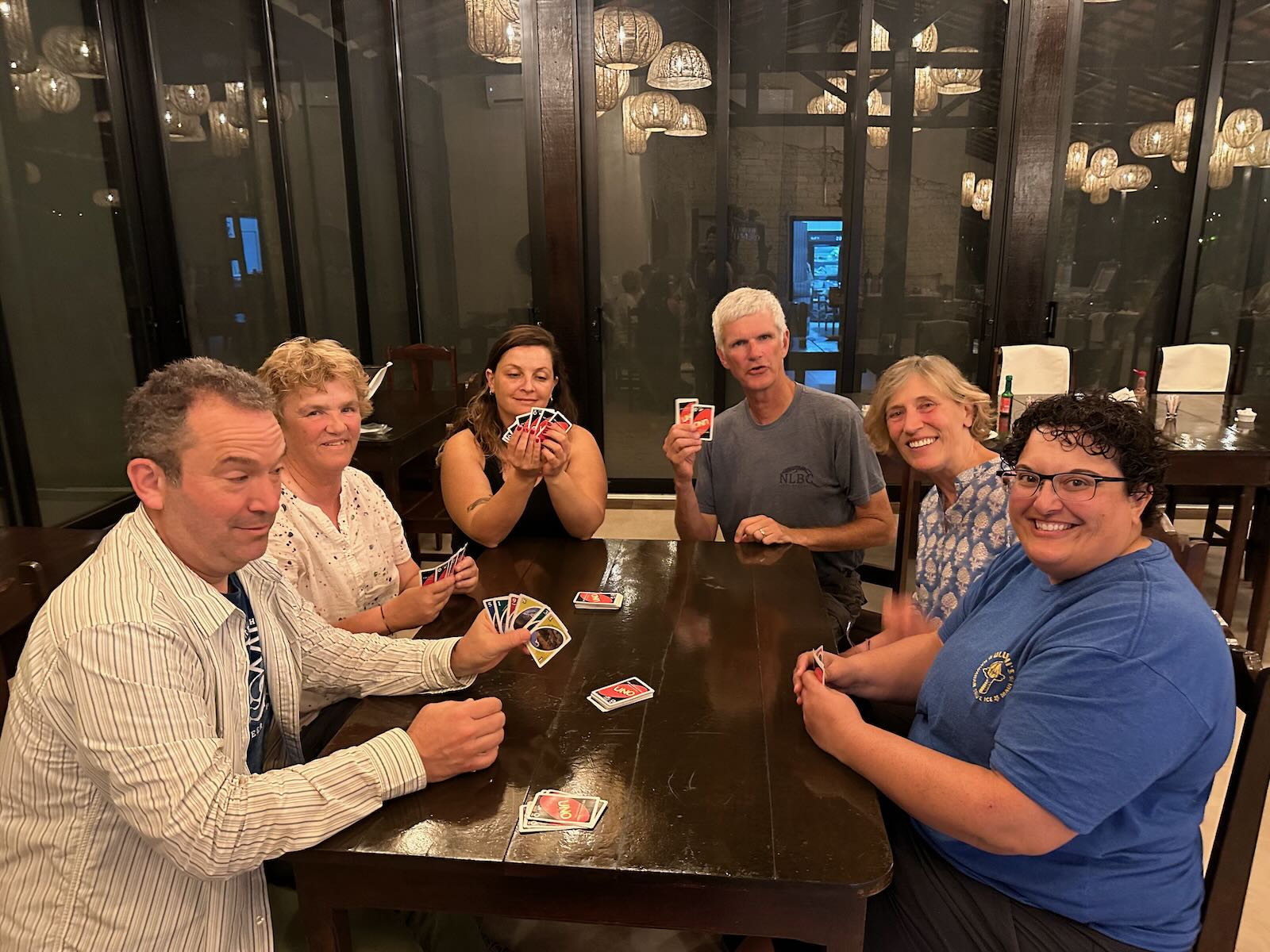
One feature of this lodge notably missing from the previous lodges: bathroom frogs! Each bathroom even had a little sign alerting the guests to the bathroom frogs possibility, and cajoling said guests to either live and let live or notify the staff so that they could relocate any unwanted amphibians. We were honored to share our bathroom wall with one of these fine fellows. The little sign included a QR code that led to a website that claimed these frogs were Scinax hayii, but that species does not live anywhere near this area. I believe they were indeed Scinax, but some other species that I haven't been able to identify from my one photo of a fairly generic-looking individual.
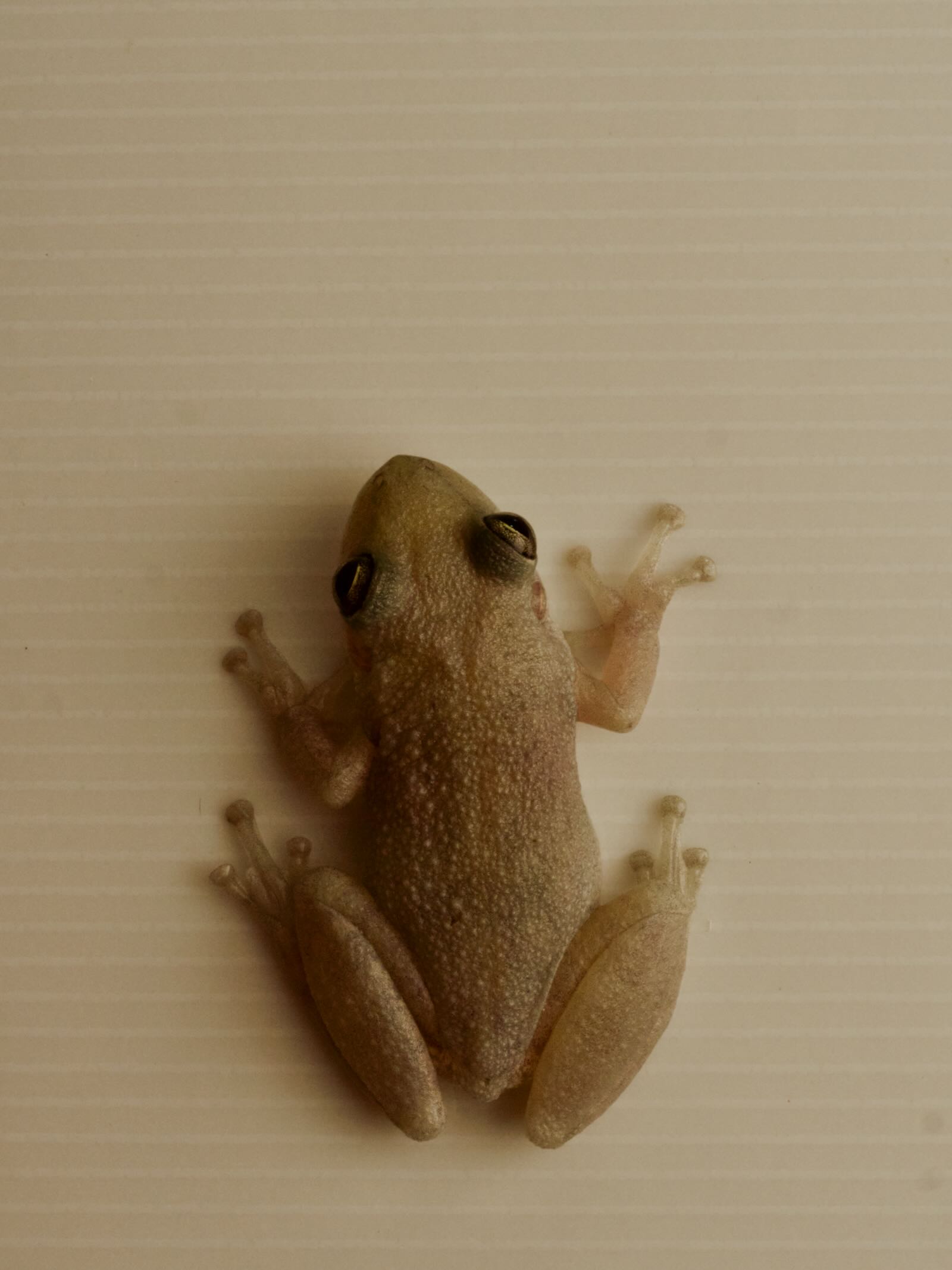
Happily, the bathroom frogs were not the only frogs around. Near the lodge I came across at least six different frog species, most of which were in the drying mud around a shallow creek.
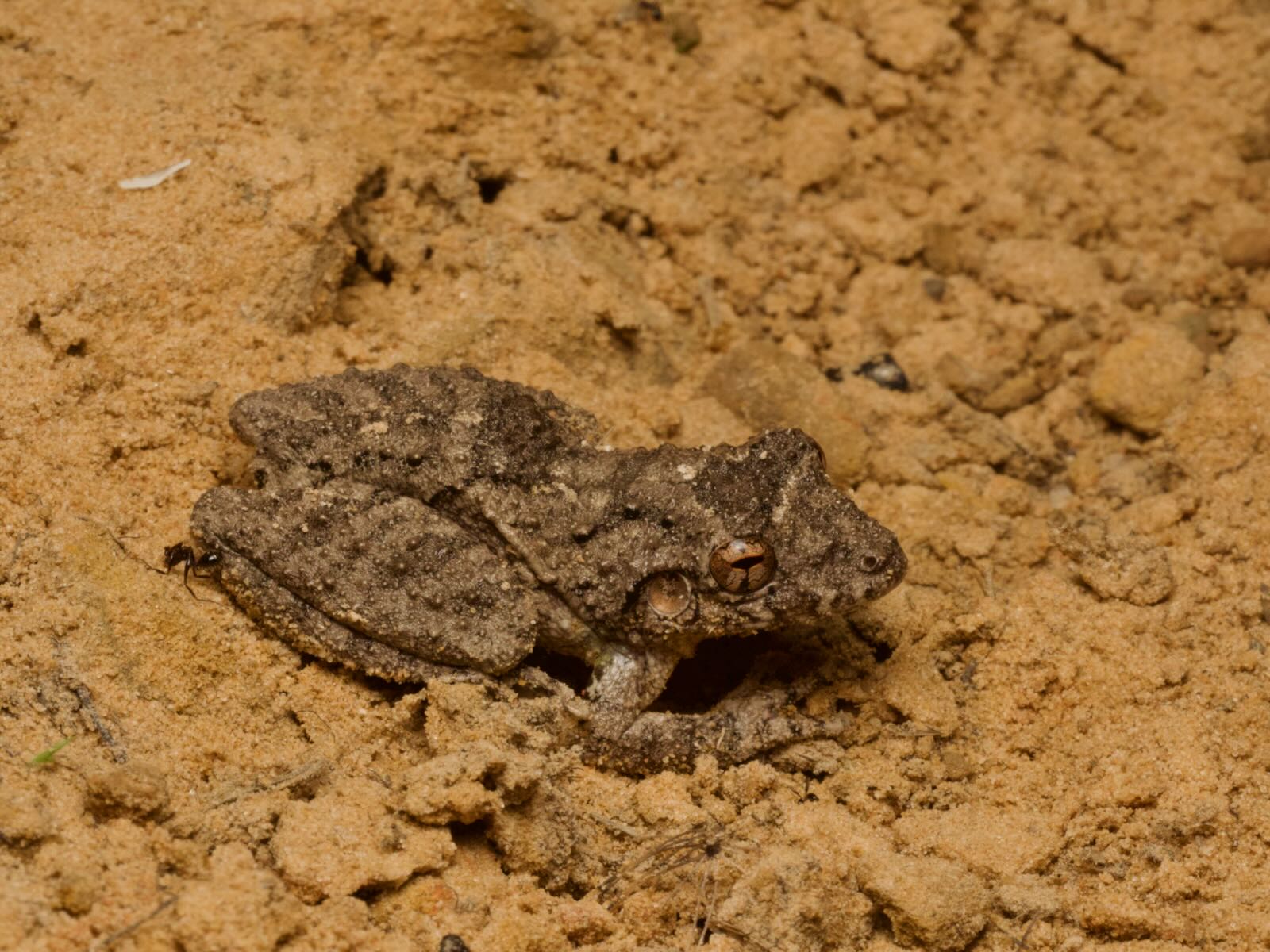
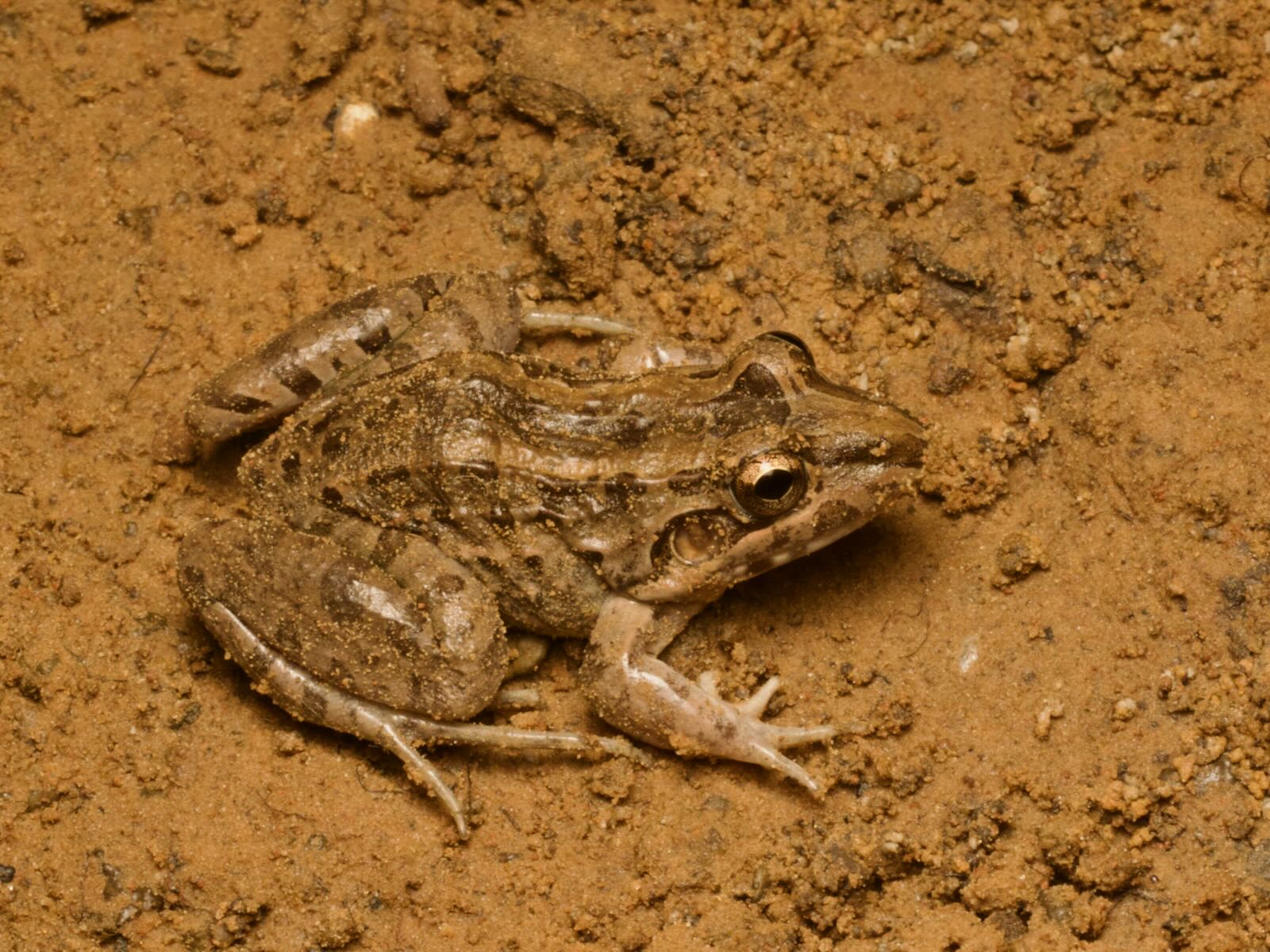
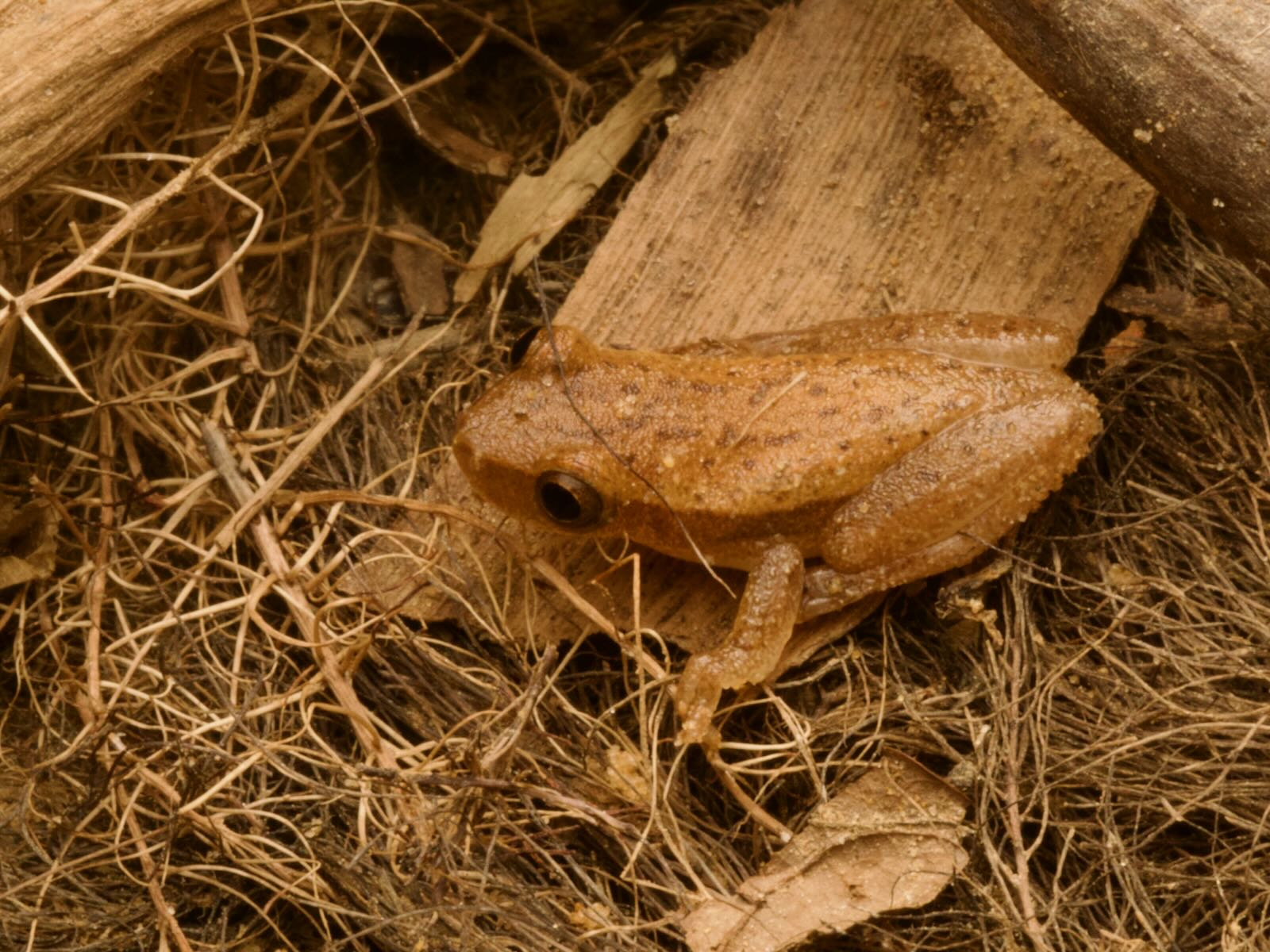
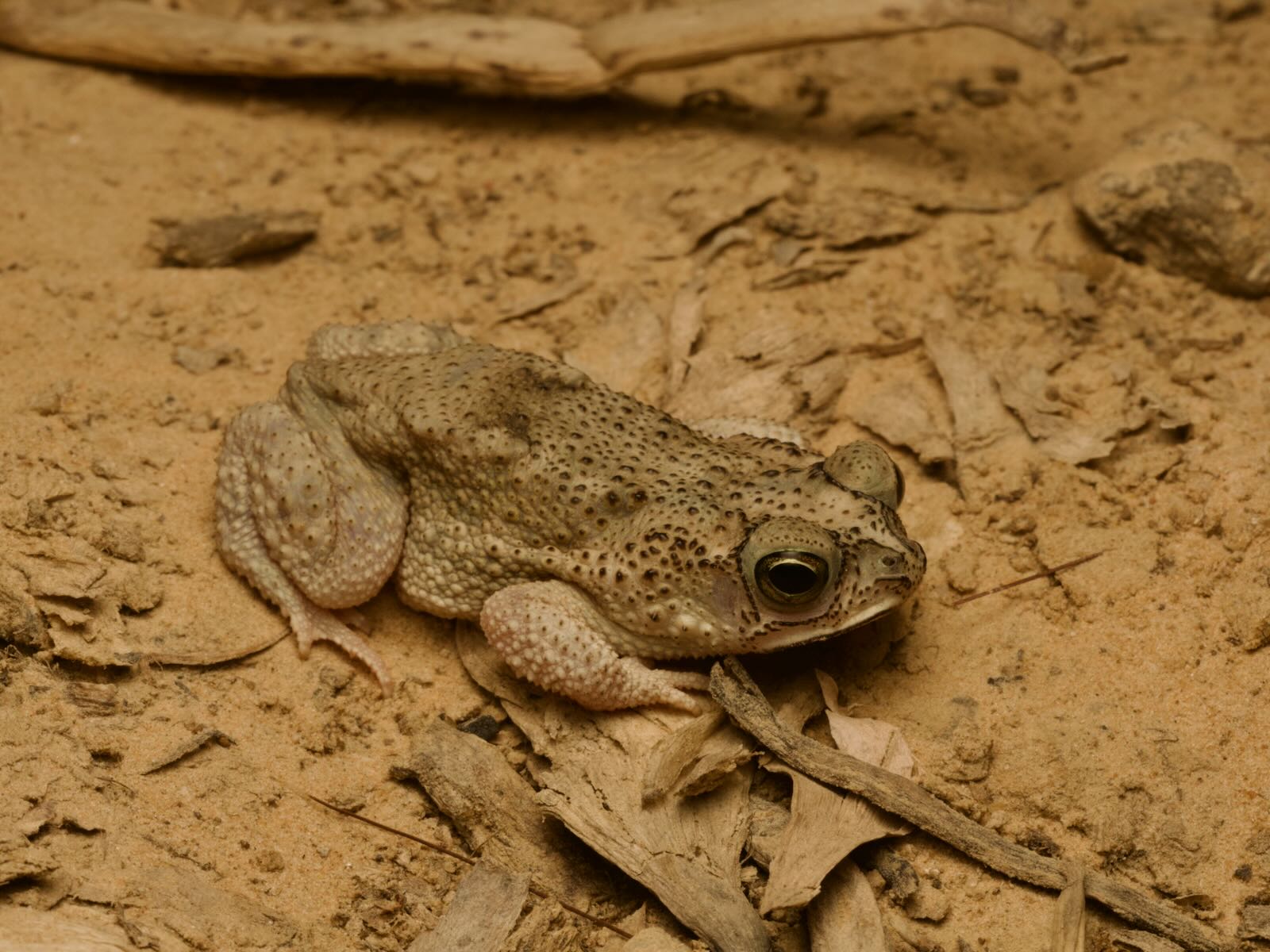
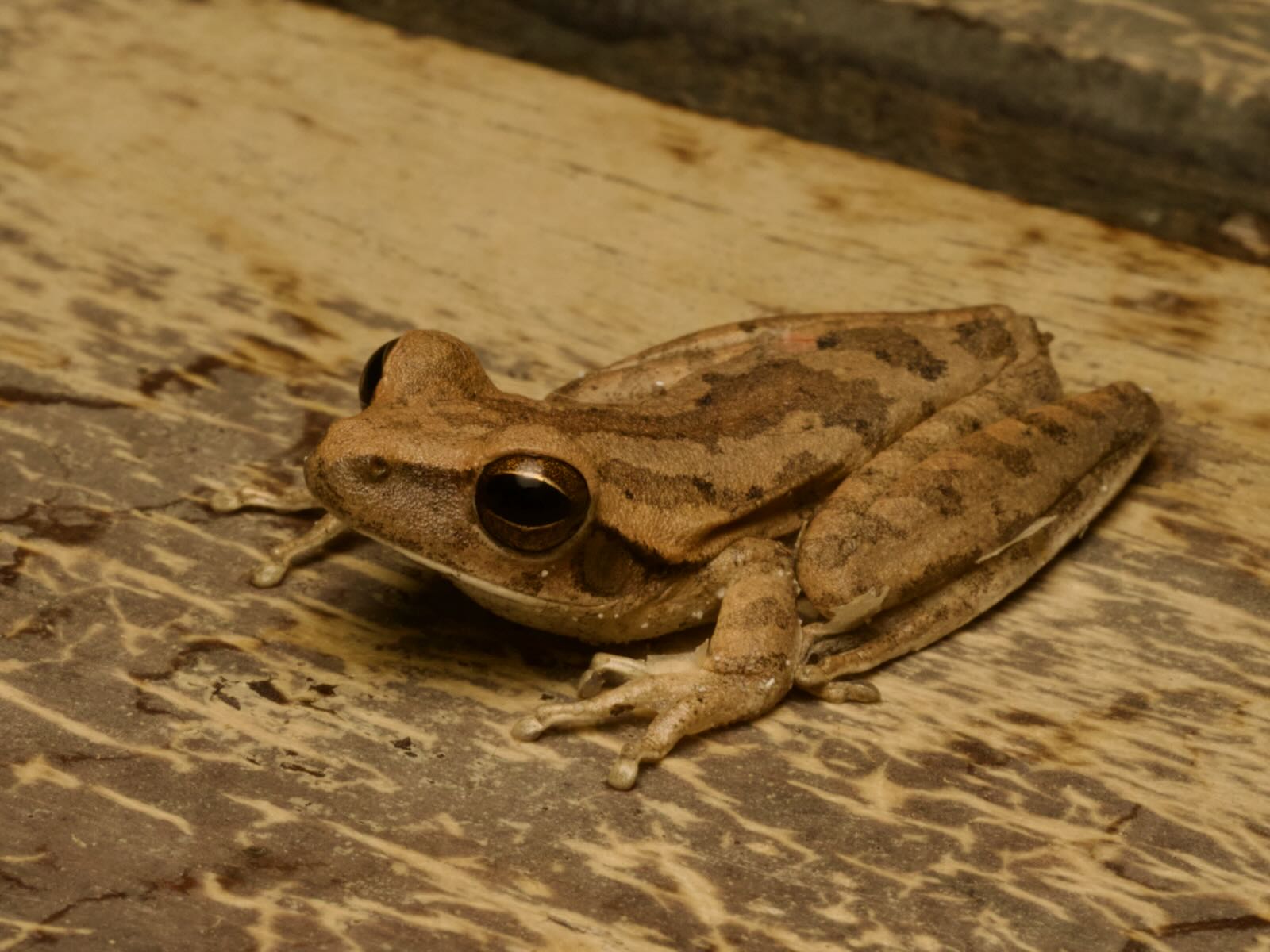
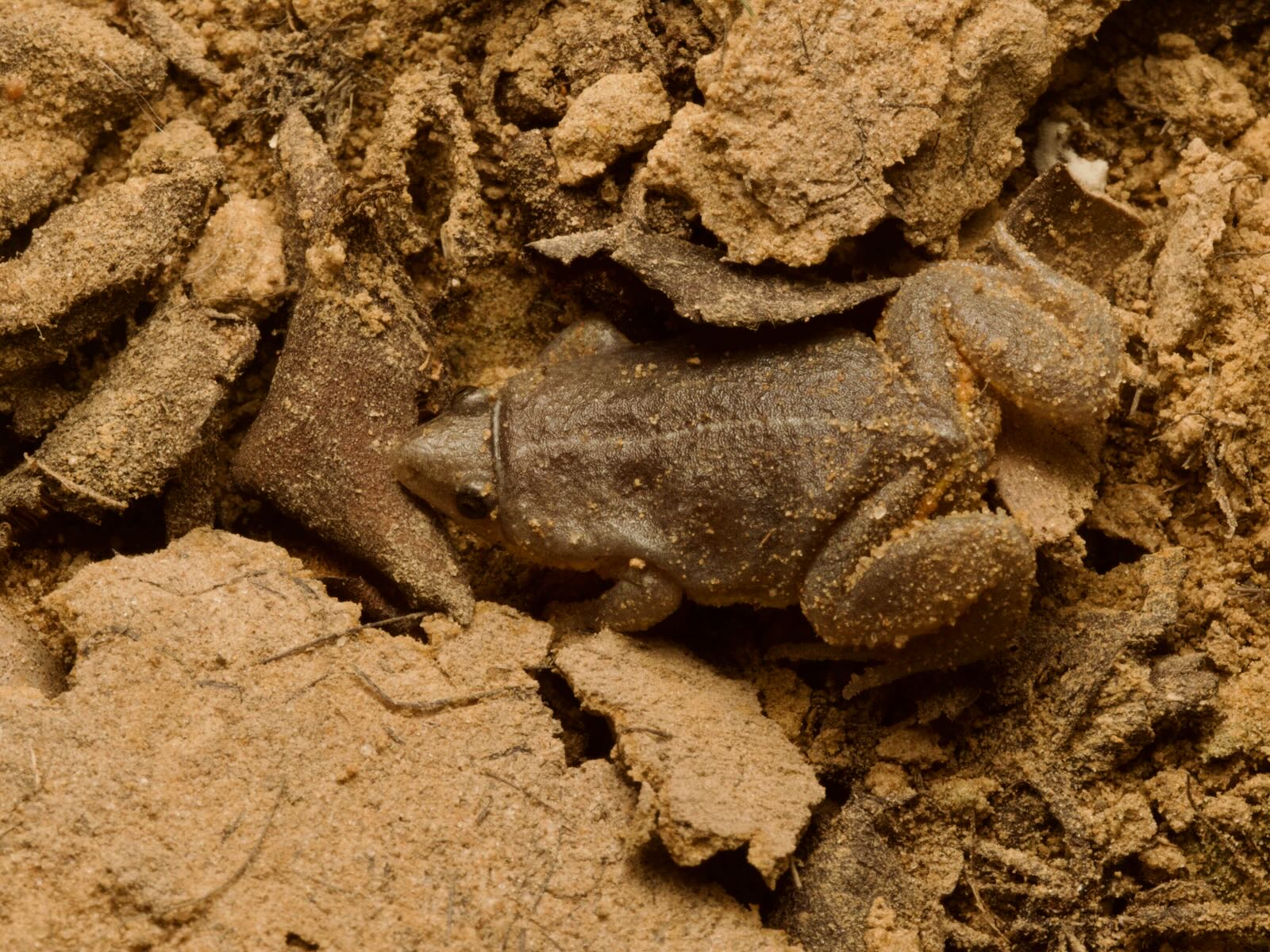
And naturally everyone was happy to see a big colorful tarantula that called the lodge grounds its home.
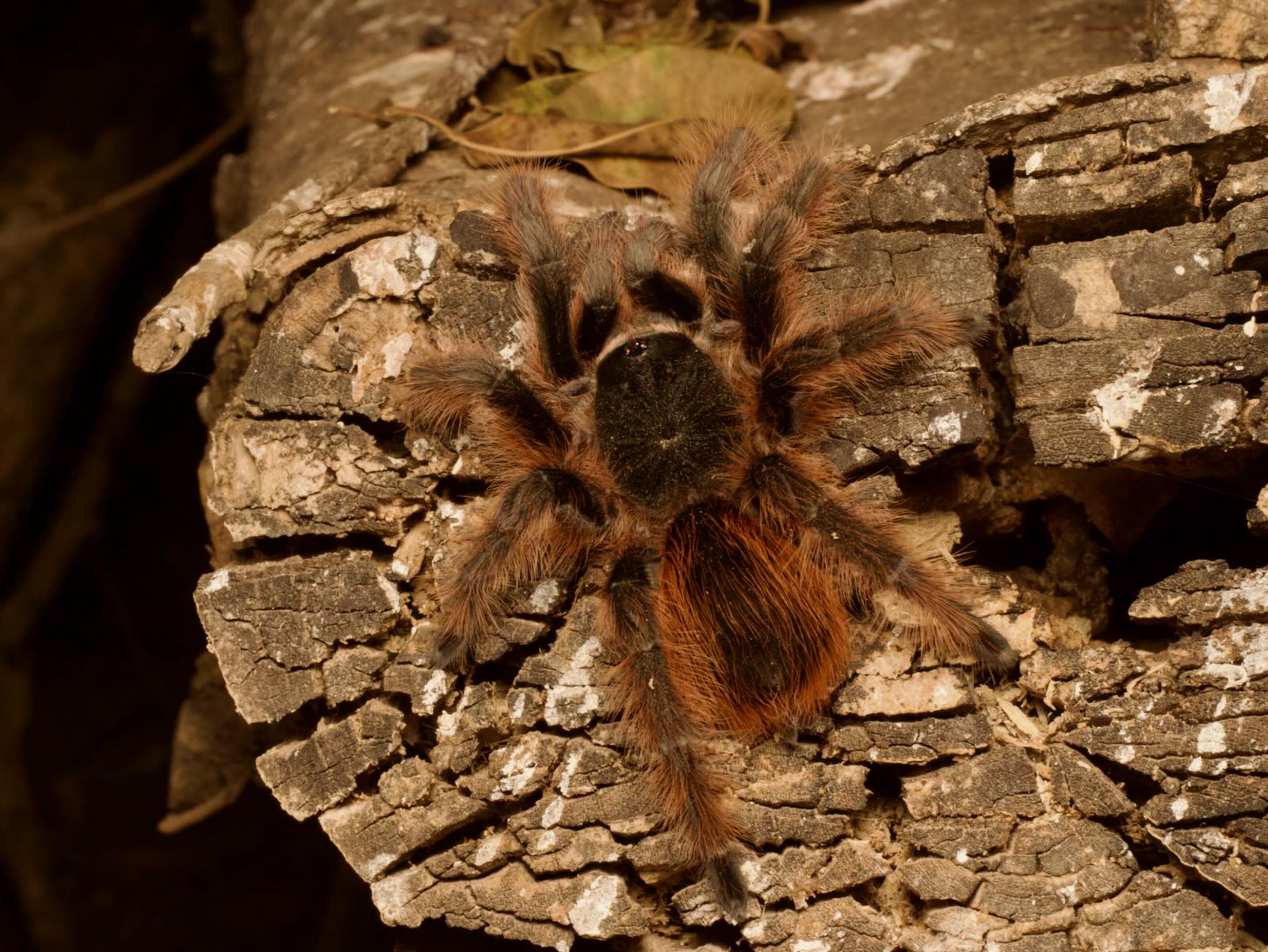
On the final morning of our trip, we took one last wildlife walk near the lodge. We saw a few new birds, and a few familiar birds, and we got our last and best look at the most beautiful deer species in the area.
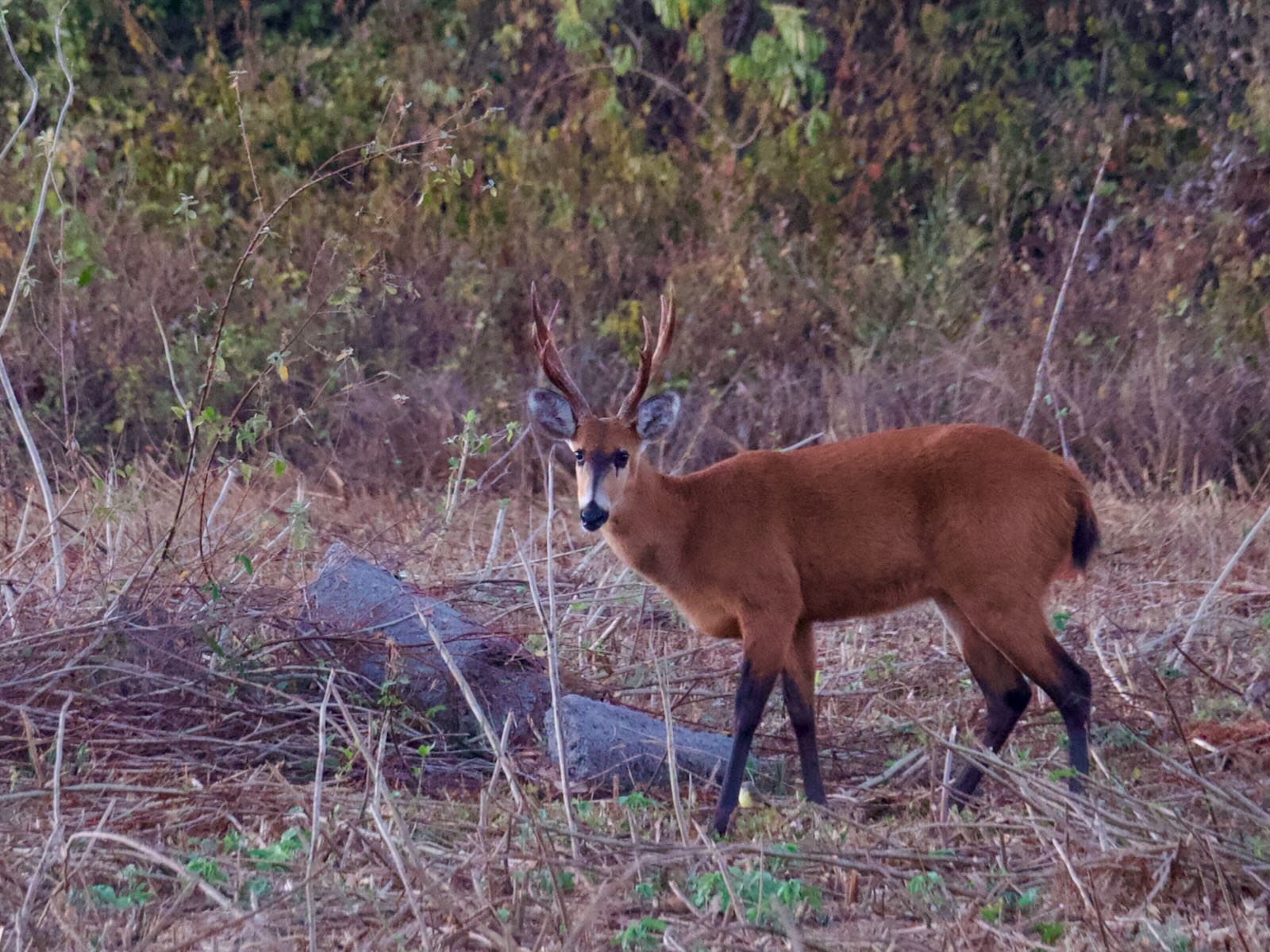
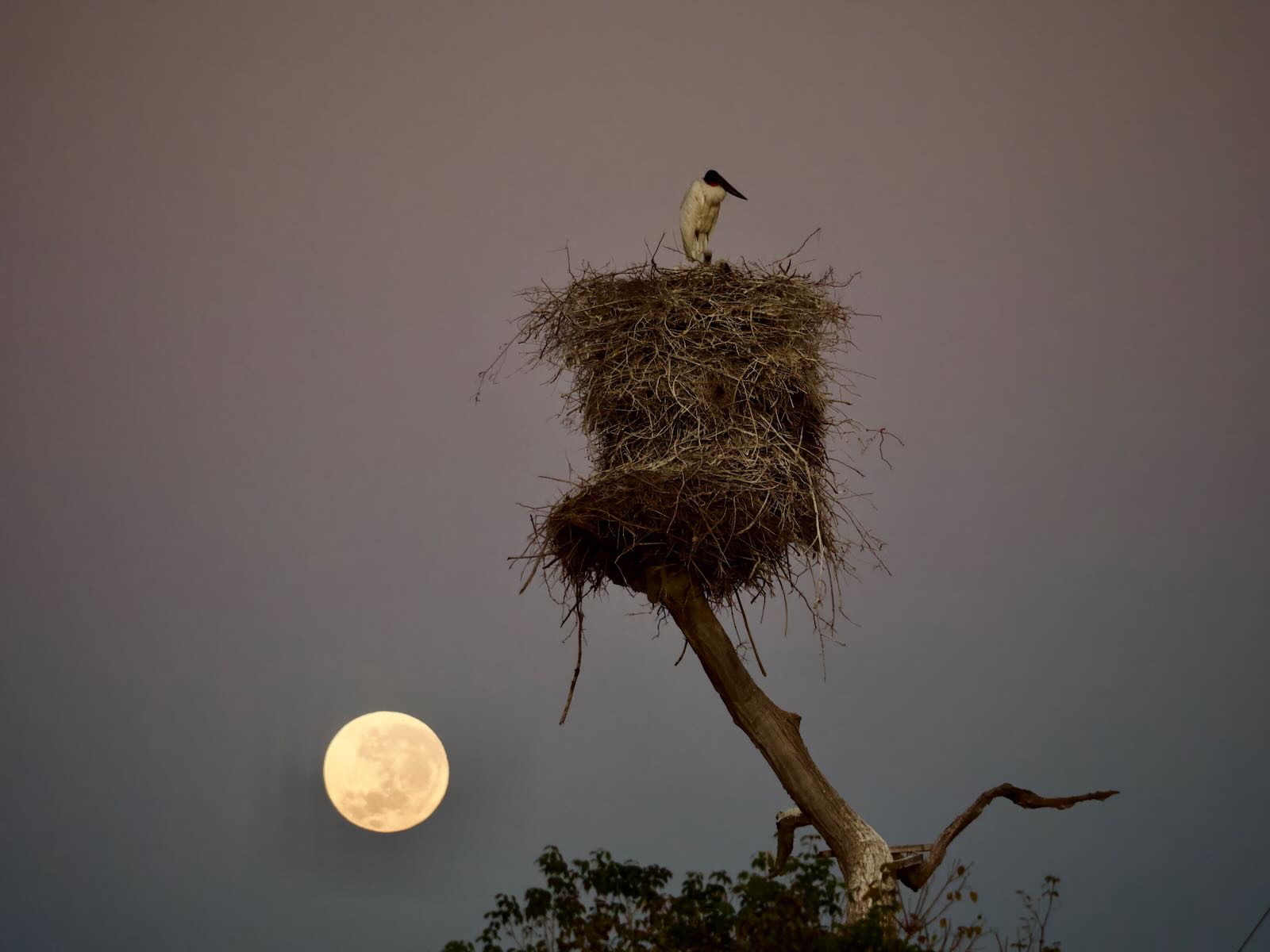
After the morning walk we returned to the lodge for the last time. While eating breakfast, we noticed a minor commotion on the walkway just outside the dining room. Several people were photographing something very small, which I at first assumed to be one of the various frogs, bathroom-type or otherwise. But eventually it seemed like there were too many people who were too interested for the subject to be a frog, and I went out to see for myself. It was a tiny little snake instead, yay!
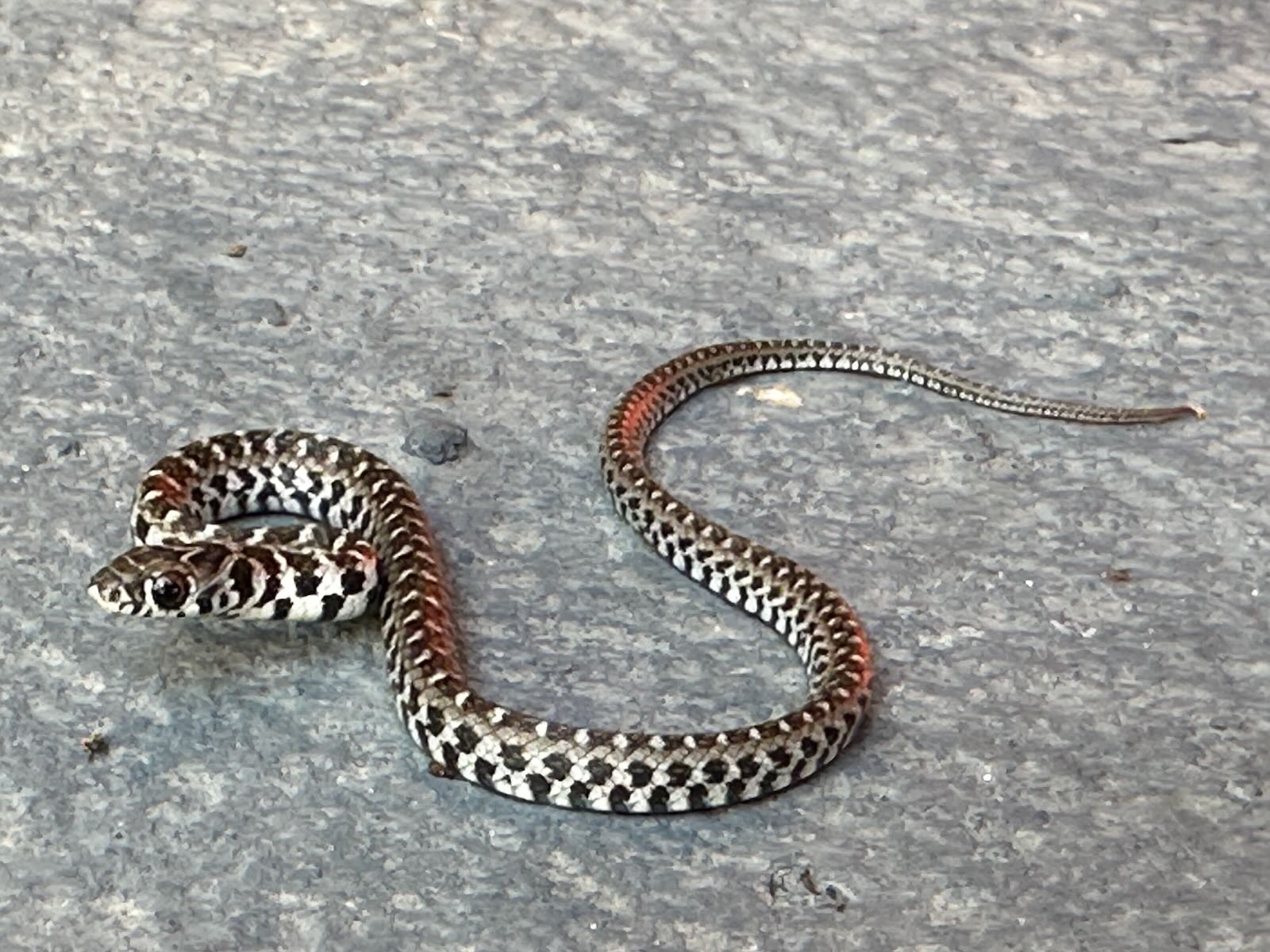
This was the final snake of the trip, and only the third one, after the anaconda and an unidentified medium-large yellow snake I had spooked while briefly on shore for a bathroom break back in Jaguar Land. So if you're looking for a lot of snakes, I cannot recommend the Pantanal. But if you're looking for a lot of jaguars, I can most enthusiastically recommend it.
John Sullivan
August 2024